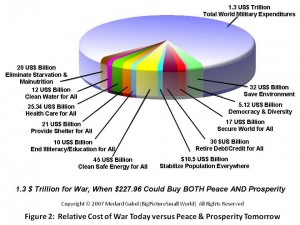 Excellent Off-Site, Gift, or Personal Improvement Book,June 9, 2009
Excellent Off-Site, Gift, or Personal Improvement Book,June 9, 2009
Robert W. Fuller
I had previously read and reviewed All Rise: Somebodies, Nobodies, and the Politics of Dignity (BK Currents (Hardcover)) and as much as I liked that first book, this is the one I recommend as a broad use item. It is ideal for any company or organizational off-set as a pre-arrival required reading, as a gift (including as an anonymous gift to the rankism-challenged, and as a personal easy to read book.
I myself have been terribly guilty of rankism, primarily in the customer service arena, where mediocre service has roused my fury and I have been less than stellar at realizing that it's not the person, it's the system, and so many others are responsible for the mediocrity that I am a fool for taking it out on the one person I can see.
Where this book renders a very useful service is in the naming of the anti-thesis to dignity, i.e. rankism. This is not a book about dignity, but rather about rankism in all its forms and how that robs all of us of dignity, but especially those least able to handle the inequalities including (new term for me) micro-inequalities–the subtle pecking to death by ducks, e.g. being interrupted constantly, not noticed, etc.
I have been focusing on integrity recently, on truth, and I confess that I have not given enough thought to the tact side of the equation. This book is persuasive in saying that truth by itself is not enough, truth must be accompanied by tact, or as I have it in my notes, “Integrity plus dignity = informed democracy.”
There are 24 sidebars, each a little gem, the key points are summarized at the end of each chapter, and I believe this book finally meets the need for a Citizen 101 Guide.
Among my fly-leaf notes:
1. Lack of dignity is a driver toward violence and unreason. This joins a mantra from elsewhere, that anger and violence generally stem from a feeling of being treated unfairly.
2. Dignity should be the first human right.
3. Costs of not providing dignity are enormous. The following is quoted from pages 3-4:
“The consequences of violating others' dignity are evident in widespread social problems such as high rates of school dropout, prison incarceration, violent crime, depression, suicide, divorce, and despair; in the business world in reduced creativity, lower productivity, or disloyalty to the organization. Even health and longevity areaffected.”
While the above is grossly simplistic, it is important and merits note.
4. Rnakism is the “root” “ism” e.g. for sexism, racism, etc, the one that fosters all other isms by artificially elevating one person over another.
5. Dignitarian intervention breaks the rankism cycle. John Steiner intervened with me one time in Denver, and I have to say that without having read this book, I did not quite see his point. Those intervening should anticipate not being understood the first several times.
6. HUMILITY in leaders signifies an open mind willing to listen to everybody. I have just finished giving up on the leaders of the U.S. intelligence community as they live in “closed circles” and are like Henry Kissinger when David Elsberg counseled him, becoming like morons in that they rely too much on narrow secrets and allow their “closed circle” to shut out all those who actually have ground truth real world experience. See my review of Secrets: A Memoir of Vietnam and the Pentagon Papers
7. The vignettes are not to be skipped. As impatient a reader as I am, I realized after a few of them that they comprise in the aggregate a 360 degree repetition of the basic lesson in many more naunced ways.
8. Secrecy and silencing are part of the Borg as I have tekn to calling it, the “establishment” in which neither Bush nor Obama really controls anything, the “system” goes on with its Wall Street ubber alles and two parties doing the bidding of special interests. Snobbery (think Council on Foreign Relations), bullying (think clearances removed from whistle-blowers) and blackballing (think CIA never hiring anyone critical of their nonsense) are all part of the Borg.
9. The book ends with comments on truth and reconciliation, of which I am a huge fan, believing the USA needs at least two–one for what has been done to We the People including our Native Americans and people of color, another for what has been done around the world “in our name” and at our expenses. Appreciative inquiry is discussed, as well as shared governances and shared evaluation.
Bottom line: this may well be the one book and the one idea that We the People cannot do without.
I also recommend:
The Tao of Democracy: Using Co-Intelligence to Create a World That Works for All
Society's Breakthrough!: Releasing Essential Wisdom and Virtue in All the People
The New Golden Rule: Community And Morality In A Democratic Society
Communitas: Means of Livelihood and Ways of Life
Orbiting the Giant Hairball: A Corporate Fool's Guide to Surviving with Grace
We the Purple: Faith, Politics, and the Independent Voter
Blessed Unrest: How the Largest Social Movement in History Is Restoring Grace, Justice, and Beauty to the World
Collective Intelligence: Creating a Prosperous World at Peace









